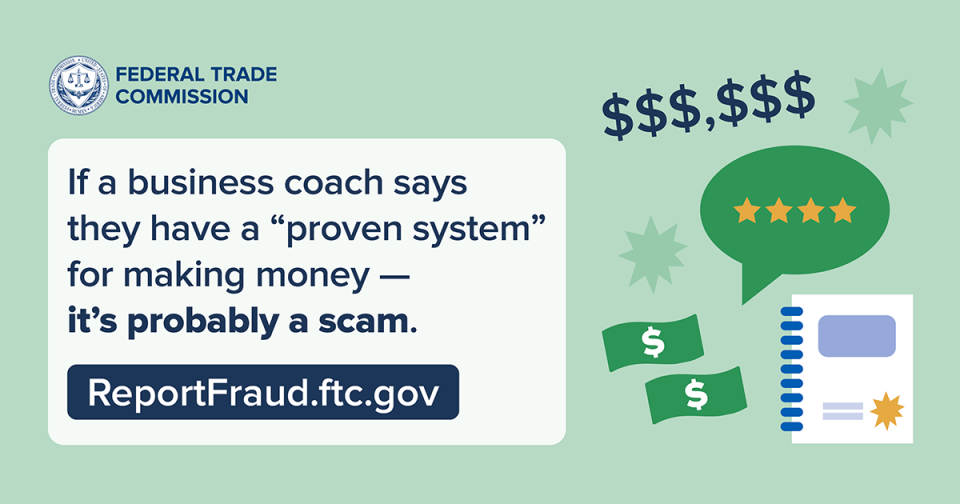Starting your own small business is a big deal, so you might hire a business coach to help you. But sometimes, these business coaches are only looking to help themselves — at your (literal) expense. Read on to learn how to spot these scams.
Scammers like to make you feel confident about your investment. That’s why they advertise their systems as “tested” and “proven” to make you lots of money quickly.
And that’s what the FTC says Lurn, a business coaching company, did. The FTC sued Lurn for claiming people who bought their programs could easily make six figure incomes through email marketing, selling eBooks, or customizable mugs — even though that wasn’t true.
So if you or someone you know is trying to start their own business and considering signing up for a coaching program, here are some things to keep in mind.
- Be wary of promises that you’ll make quick money. No one can guarantee you’ll make lots of money with little to no risk. Anyone who does is a scammer.
- Take your time and talk to someone you trust. Scammers will pressure you to get involved now or “risk losing out.” Get a second opinion about the business offer or coaching program from someone who has your best interests in mind.
- Read success stories and testimonials with skepticism. They might not be true or typical. Glowing stories of success could be fake or misleading, and positive online reviews may have come from made-up profiles.
Have you spotted a business you think is a coaching scam? Tell the FTC at ReportFraud.ftc.gov.


Help me
Many obstacles on high waters alone.
If you're having doubts, continuously document everything nearby and keep it.
What do I do if someone has been getting loans and assistance in my name opening accounts and putting disclosures on them where I can find out who is the source of all these problems
In reply to What do I do if someone has… by Pete H Rodriguez III
When someone gets loans and opens accounts in your name that is identity theft. Report identity theft to the government at www.IdentityTheft.gov and make an Identity Theft Report.
Then, use Your Identity Theft Report to show businesses that someone stole your identity and fix mistakes on your credit reports.